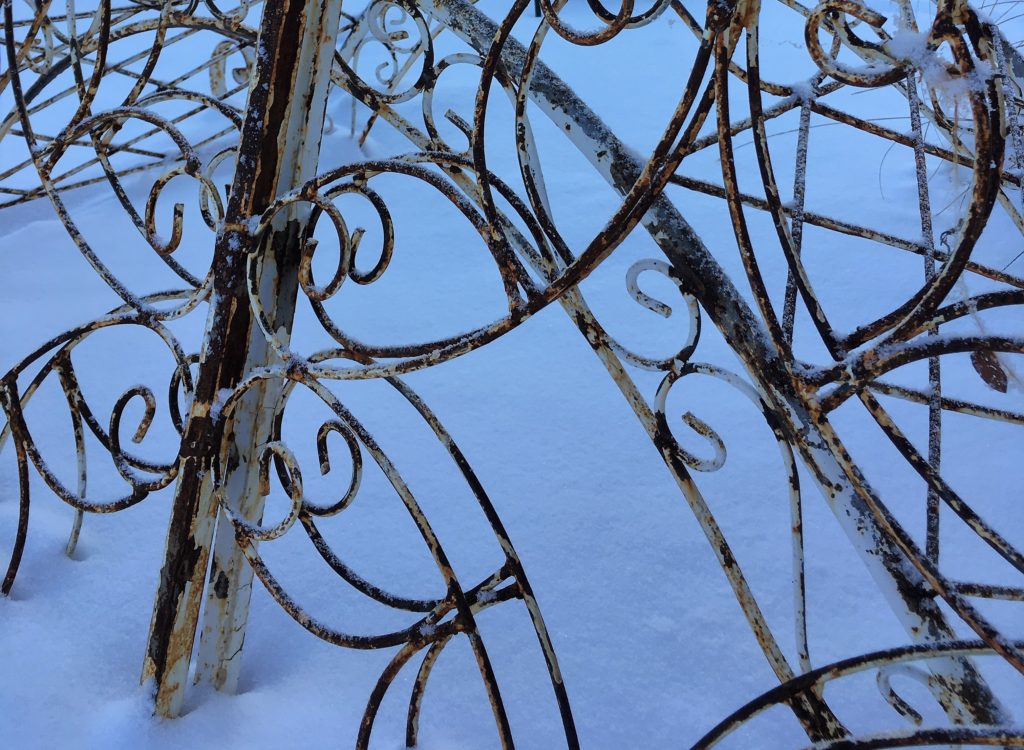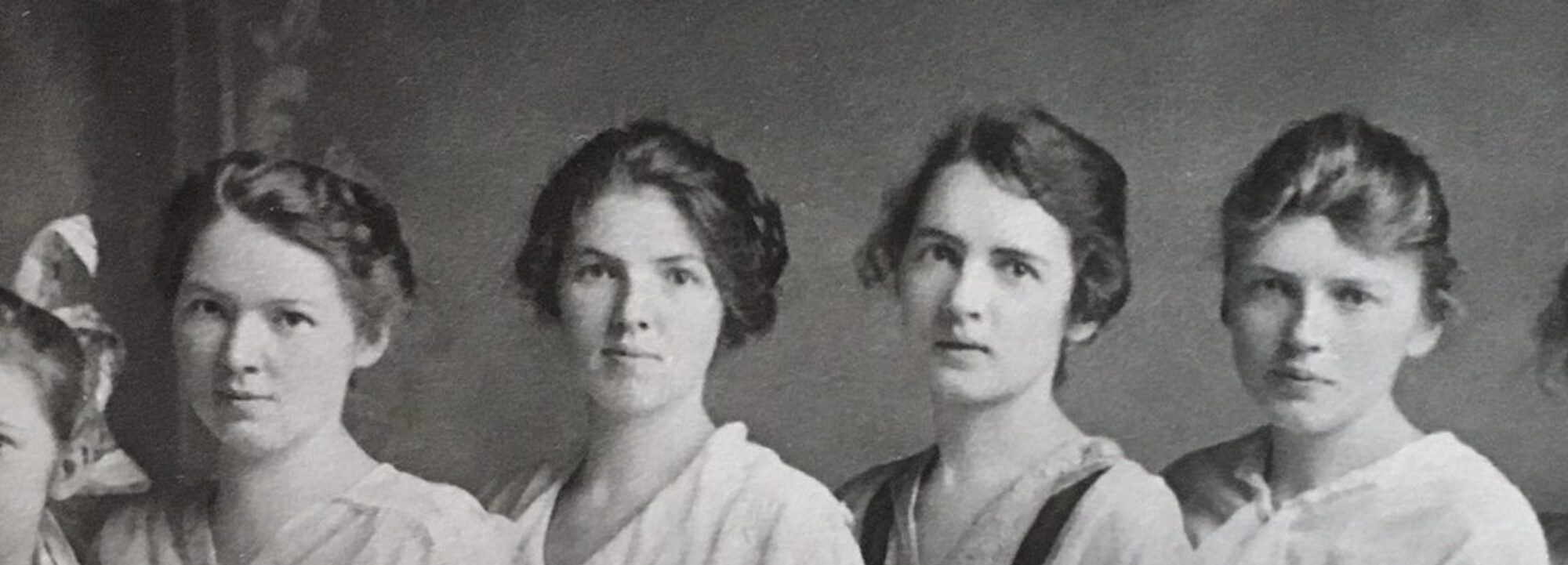Lightening laced the air–the June sky was veiled a deep purple-blue—an eerie nighttime in the late afternoon. The wind whined and whistled, the old maples swayed and curtsied, the thunder growled and menaced.
“There’s nothing to be afraid of. It’s okay,” my mother crooned. “Let’s watch for your dad.”
My dad was working beyond the barn, cultivating the corn fields on our low ground–rich black muck stretching all the way to the far ditch banks and the distant woods. He was trying to finish before the storm. From behind the panes of the front window I could see his tractor, a small red dot inching its way down the rows, working its way towards the gravel road leading home.
Tears welled in my eyes, “Please, hurry, hurry, hurry, Daddy,” I prayed, pressing my hands to the cool glass.
This was my whole five-year-old world: the barns brimming with glossy eyed steers, the fields striped with tender seedlings, the yard shadowed with trees, and our home filled with comfort.
I pressed my nose to the window as the rain drops began, speckling the sidewalk. I heard the sputter of the tractor as my dad rumbled up the ramp and into the barn.
Then the summer storm raged, the water ran in sheets down the front window and the lightening sizzled and snapped. Shaking, I hid my face into my mother’s soft bosom, she held me tight and stroked my hair. We rocked and rocked, waiting for the storm to break , watching for my father to walk across the road from the barn.
My two little brothers played happily on the floor, oblivious to the storm, to the noises, to their frightened big sister. They built their block towers and knocked them noisily, their monuments clattering to the floor as the lightning flashed and the thunder rattled our old farm house’s bones. I wrapped my arms around the wonderful softness of my mother, and she rested her cheek on the top of my head.
“Kathy, look.” I turned to the window. My father stood in the barn doorway and waved his hat—he put it back on his head, and raced towards the house, leaping across the puddles, sprinting across the road to the shelter of the front porch, the screen door slapping shut behind him.
“Wow! That sure came up quick!” He stood, dripping, shaking his hat. “What are you boys building?” he asked, bending to touch my brothers’ heads as they pummeled another structure.
He turned to my mother and me. “How are my girls?” He reached down and took my trembling hand and pressed it between his. He looked at my mother.
“She was worried about you,” my mother prodded.
My dad bent down and looked in my eyes. “Kathleen, it’s okay.”
I wasn’t convinced. I looked up at him, still dripping with rain, still holding my hand.
“Kathleen, it’s always going to be okay.”
And it was. And it is. And it will be.
My parents continued to add to our family–two more baby brothers within the next five years. And our home stretched and adjusted, welcoming the seasons and changes that life eventually brings. Those years in our childhood home and the many lessons we learned together shaped us and allowed us to understand that this life journey has both ups and downs, joys and sorrows, but that things work out—hard times don’t last.
When we hurt each other, we learned forgiveness.
When we met challenges, we learned persistence.
And as we face the body’s mortality, we learn grace.
Sunshine always comes after the rain.
My life’s anthem.








 I always—quite smugly—profess my needs to be so simple: family, friends, food, and shelter. My adult kids roll their eyes then smile at me. They understand my marquee message: “Oh yeah, we know, Mom,” they sigh. But when the holidays loom, my satisfaction with our 1960s three-bedroom tri-level dissolves. The space suddenly seems so inadequate. I quickly go from, “I don’t need anything for Christmas except time together” to dreaming on Zillow for a massive home, complete with a commercial-grade kitchen and showplace dining room. I could graciously greet my family at the door, calmly inviting them into House Beautiful. A graceful staircase would lead them to bedrooms staged with fine furniture and sumptuous linens and window coverings, each adjoining bathroom sparkling.
I always—quite smugly—profess my needs to be so simple: family, friends, food, and shelter. My adult kids roll their eyes then smile at me. They understand my marquee message: “Oh yeah, we know, Mom,” they sigh. But when the holidays loom, my satisfaction with our 1960s three-bedroom tri-level dissolves. The space suddenly seems so inadequate. I quickly go from, “I don’t need anything for Christmas except time together” to dreaming on Zillow for a massive home, complete with a commercial-grade kitchen and showplace dining room. I could graciously greet my family at the door, calmly inviting them into House Beautiful. A graceful staircase would lead them to bedrooms staged with fine furniture and sumptuous linens and window coverings, each adjoining bathroom sparkling.